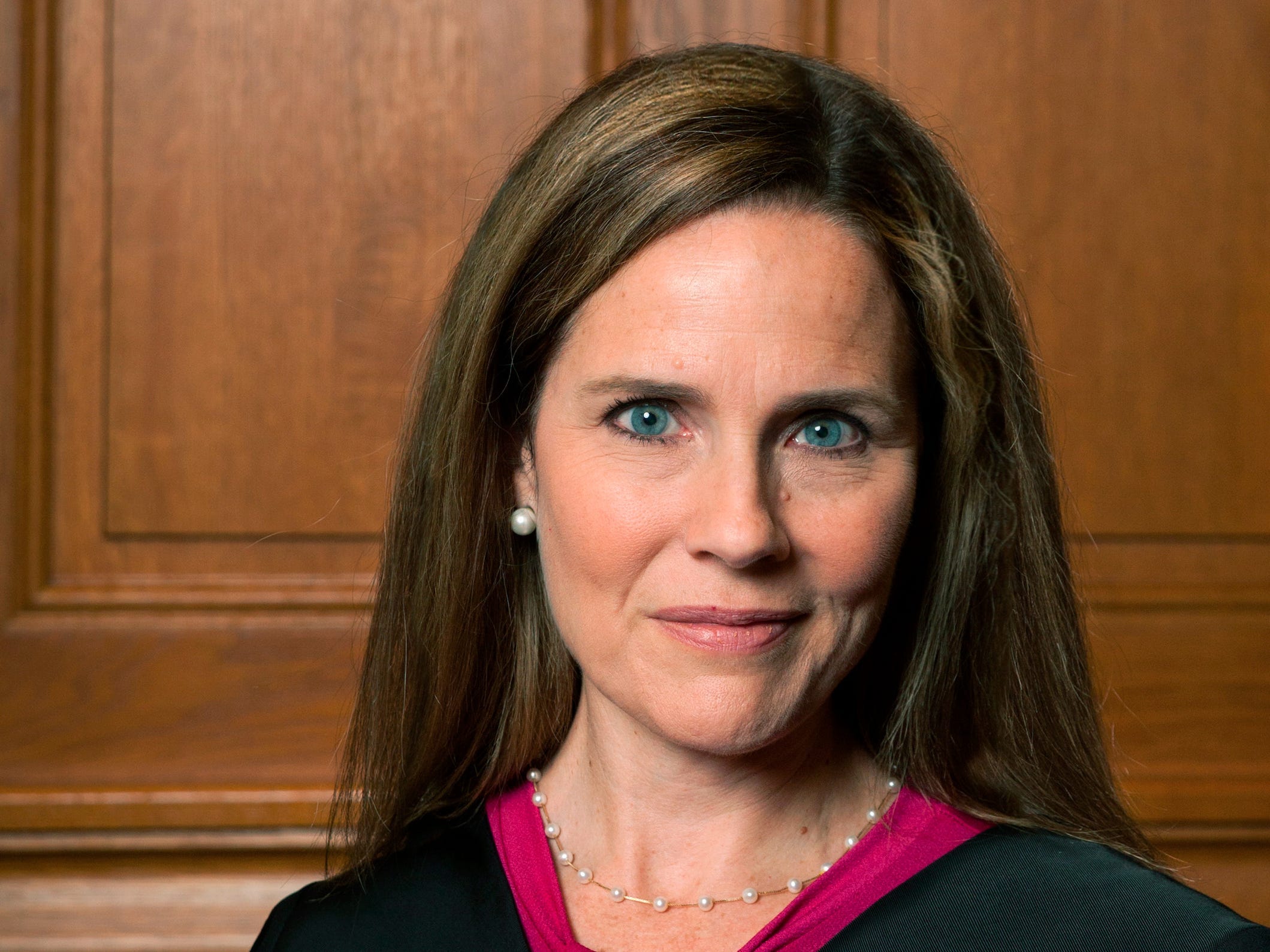
Rachel Malehorn via AP
- President Donald Trump is expected to nominate Judge Amy Coney Barrett to replace Justice Ruth Bader Ginsburg on the Supreme Court, several news outlets reported Friday evening.
- Barrett is a deeply conservative judge who is a longtime opponent of Obamacare or the Affordable Care Act.
- If she is voted on to the Court, she could strike down the ACA, which could leave millions of Americans without adequate health insurance during a pandemic.
- Visit Business Insider’s homepage for more stories.
President Donald Trump is expected to nominate Judge Amy Coney Barrett, a deeply conservative judge, to replace Justice Ruth Bader Ginsburg on the Supreme Court, several news outlets reported Friday evening.
Barrett is a longtime opponent of the Affordable Care Act, or “Obamacare,” and if confirmed could strike down the law. CNBC reported that a legal challenge to ACA is expected to be heard in November after the 2020 presidential election.
Senate Majority Leader Mitch McConnell and a majority of Republicans have said they would hold hearings and confirm Trump’s nominee before Election Day.
“Virtually the entire law is at stake,” Cynthia Cox, vice president at the Henry J. Kaiser Family Foundation, told CNBC.
In 2017, Barrett was critical of Chief Justice John Roberts’ reasoning to uphold the Affordable Care Act.
"Chief Justice Roberts pushed the Affordable Care Act beyond its plausible meaning to save the statute," Barrett wrote then. "He construed the penalty imposed on those without health insurance as a tax, which permitted him to sustain the statute as a valid exercise of the taxing power; had he treated the payment as the statute did — as a penalty — he would have had to invalidate the statute as lying beyond Congress's commerce power."
If Barrett is confirmed, she would shift the ideological balance of the Court to the right. Conservatives would then have a 6-3 majority.
Newsweek reported that in 2012, Barrett signed a petition against the ACA claiming that employers providing birth control is a violation of religious freedom.
"The simple fact is that the Obama administration is compelling religious people and institutions who are employers to purchase a health insurance contract that provides abortion-inducing drugs, contraception, and sterilization. This is a grave violation of religious freedom and cannot stand," Barrett said according to Newsweek.
Daniel Goldberg, legal director at the Alliance For Justice, told Business Insider that Barrett would fulfill Trump's goal to strike down the act, however, her confirmation could "literally people's lives are in jeopardy."
"Donald Trump has made clear that everybody on his shortlist, every judge, he nominates is somebody who will declare the Affordable Care Act unconstitutional and take away healthcare from millions, and she quite clearly meets that litmus test," Goldberg said.
More than 20 million Americans have gotten health insurance coverage because of Obamacare. Additionally, millions more have likely gotten coverage through during the span of the pandemic as more and more people have been laid off and lost their employer-based coverage, CNBC reported.
The outlet also added that striking down the ACA could have detrimental consequences to costs and who gets covered.
While insurers are now only able to adjust prices based on age, geography, and tobacco use, if Obamacare is struck down insurers could raise costs based on conditions like asthma or deny coverage based on pre-existing conditions like cancer. Insurance plans could also become less comprehensive and not cover things like maternity care, mental health, and substance abuse treatment.
Trump recently signed a largely symbolic executive order to keep protections for preexisting conditions. However, "If Obamacare were overturned, such an order would be toothless," The New York Times explained. "Major new regulations of the health insurance industry would require legislation, which is why the Trump administration pursued Obamacare replacement in Congress in the first place."
The Kaiser Family Foundation reported that around 54 million non-elderly adults had a declinable pre-existing health condition in 2018.
"I think it's a question for the entire Republican caucus," Goldberg said. "Do you want to go back before your voters and confirm someone who, in the middle of a pandemic, has made clear they will take away healthcare from millions of people, including persons with preexisting conditions?"
Tyler Sonnemaker contributed to this reporting.

